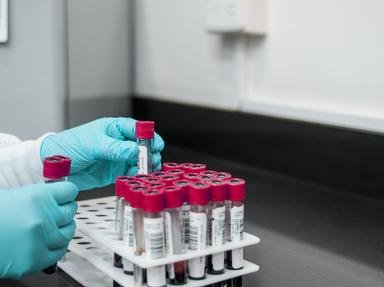Quiz Answer Key and Fun Facts
1. Which element may appear in hydrocarbons?
2. Which of these hydrocarbons is impossible to find in nature?
3. Which of these is characteristic of alkanes?
4. Which hydrocarbon is impossible to find in nature?
5. There are two unlabeled beakers (A) and (B). One of them contains octene, and the other contains heptane. We mix bromine solution with each hydrocarbon, and we notice that the liquid in beaker (B) decolorizes bromine solution. Which beaker contains heptane?
6. Which hydrocarbon has all its carbon atoms in its sp3 hybrid state?
7. The benzene molecule is a stable molecule. What makes it stable?
8. What is the difference between the chlorination of propane and the chlorination of butene?
9. Which compound is a positional isomer of 2,3-dimethyl-1-butene?
10. Which compound is the most reactive?
Source: Author
Nigol123
This quiz was reviewed by FunTrivia editor
crisw before going online.
Any errors found in FunTrivia content are routinely corrected through our feedback system.

